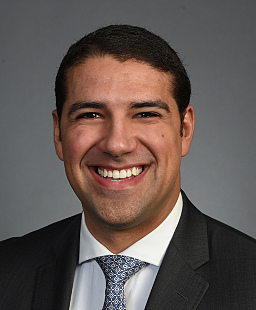 Being a young law professor (the majority of law professors are over 40 years old), I’ve been able to approach teaching contracts from a unique perspective that comes from both being (relatively) young and recently being a student (Class of ’20).
Being a young law professor (the majority of law professors are over 40 years old), I’ve been able to approach teaching contracts from a unique perspective that comes from both being (relatively) young and recently being a student (Class of ’20).
I assume that since you are here reading this, you are already interested in contract drafting – because you are kindred spirit, with a love for defined terms and redlines, I will save my stump speech (about how contracts form the very foundation of our economy and how contract law is one of the cornerstones of a peaceful society) for another time.
Instead, I will share a few ideas from two different perspectives: first, for law students that want to excel at contract drafting, and second, for practicing lawyers interested in becoming adjunct professors.
With all that said, here are a few tips from your favorite millennial law professor:
Three Tips for Law Students Who Want to Master Contracts
1. Learn the Law
Contract drafting requires a solid substantive grasp of contract law. Once you learn consideration, offer and acceptance, my advice is to dig deeper into the nuances of defenses, remedies and interpretation. Focus on learning contract law inside and out, and you are already well on your way to becoming a great drafter.
2. Read the Fine Print
The best drafters love to read contracts! One of the suggestions I give to future contract drafting students is just to read the contracts that they are a party to. Mobile service agreements, terms of service, and leases are some of the common contracts that all students are a party to. Seeing the “general” provisions that are repeated across many types of agreements, seeing how the key terms differ, and beginning to understand how different dispute resolution provisions can be formulated are some of the benefits of reading the every-day contracts you may find yourself in.
3. Draft in Sections
When actually beginning to draft that first assignment, break the drafting process up into smaller, manageable pieces. Treat each provision, paragraph, and sentence as a separate, standalone drafting task. While it can seem overwhelming to visualize drafting an entire contract, if you can draft a sentence properly, you can draft an agreement. I believe in you!
Three Reasons To Be An Adjunct Professor
Turning now to those lawyers who may be considering whether adjunct position is in their future: teaching law part-time is a fantastic opportunity. I did not seek out the opportunity to teach, but was always open to it – I followed my natural interests in drafting and transactional law and they made me an offer I couldn’t refuse.
1. Teaching makes you technically better
My day job, as an emerging company associate in a large law firm, is certainly demanding. But I have found that teaching has an interesting way of making you better at whatever it is that you are teaching. It’s one thing to know how to draft an indemnity provision – it is a different thing entirely to teach someone else how indemnity works. You become all the better for knowing how to do both.
2. Teaching makes you a better client communicator
Teaching can be defined the transfer of information from the teacher to the taught. But, if it were that simple, you could just assign readings and have an exam at the end. The art of teaching involves much more than simply transferring information – it involves preparing that information and presenting it in a way that makes it the most accessible for that particular learner. Advising a client is similar – it is necessary, but not sufficient, to know the law. A lawyer (a good lawyer) must also be able to help their client understand the law – especially if you want them to follow your legal advice!
3. Teaching is a way to give back
Teaching has allowed me to contribute something positive to my legal alma mater and to help future lawyers. I have been able to connect my students with other lawyers in the profession, as well as fielding questions on professional career development. Many students have inquired about how I discovered the transactional practice of law, and it is rewarding to be able to assist law students with discovering different practice area options.


















2 Responses
Adjuncts are the unsung heroes of legal education! https://info.cooley.edu/blog/adjunct-law-professors-blessing-or-curse
Agreed!